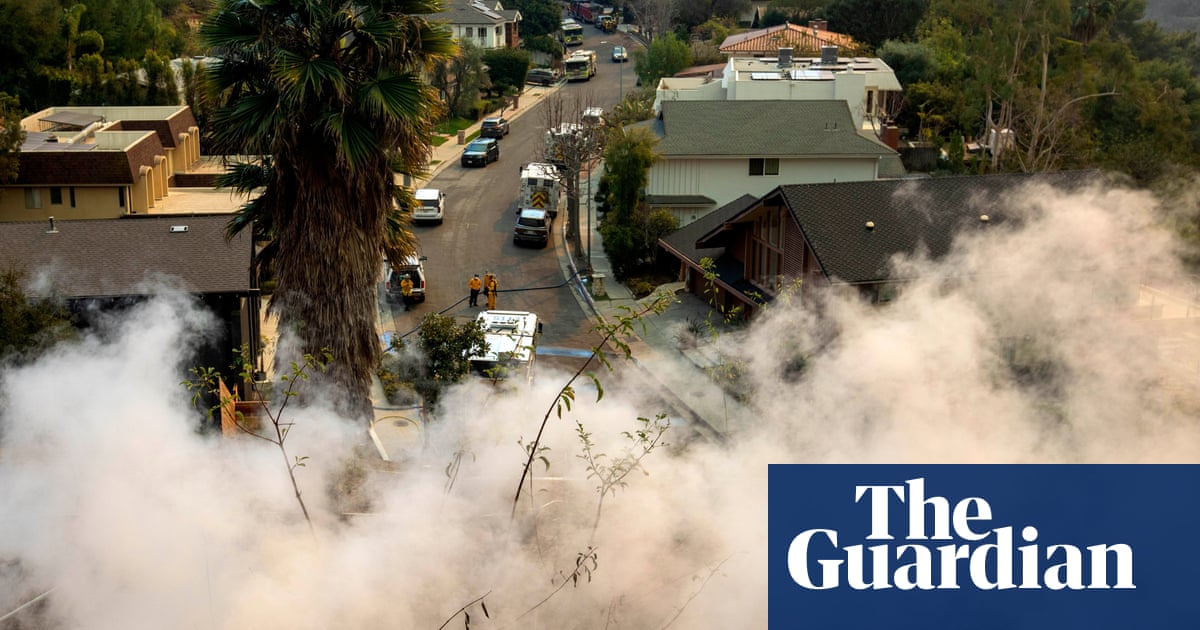 |
|
The devastating wildfires raging across Los Angeles have cast a pall of fear and uncertainty over thousands of residents, leaving them in a state of limbo as they grapple with the immediate aftermath and the looming threat of renewed flames. The recent fires, primarily the Palisades and Eaton fires, have scorched over 40,000 acres, resulting in a tragic death toll of 24 and leaving 13 individuals unaccounted for. The sheer scale of the destruction is staggering, leaving residents like Aaron McNeil, who relocated to Los Angeles just three years ago, facing a reality far more daunting than the earthquakes he initially feared. McNeil's experience, along with countless others, encapsulates the widespread disruption and anxiety gripping the affected communities. The abrupt evacuation from his Brentwood home, the frantic search for shelter in a nearby hotel amidst billowing smoke, and the constant worry about the safety of his family paints a vivid picture of the chaos and desperation that unfolded. The uncertainty surrounding the lifting of evacuation orders only exacerbates the stressful situation, leaving residents caught between the desire to return home and the need to prioritize their safety.
The precarious situation is further compounded by the relentless threat of strong Santa Ana winds, predicted to persist until Wednesday. These winds, notorious for their ability to rapidly spread wildfires, cast a long shadow over the efforts of firefighters to contain the blazes. Even with some progress made in controlling the Palisades fire (11% containment as of Sunday), the fear remains palpable. Residents are anxiously awaiting the next 24 hours, their hopes pinned on the wind's behavior. McNeil's statement – “We got our fingers crossed” – perfectly encapsulates the collective sentiment of a community clinging to hope amidst the uncertainty. This sentiment is echoed by Barbara and Marc Fishman, who have been without power since Friday and are keeping a close watch on the winds, their bags packed, ready to evacuate once more. The couple’s poignant observation about the difficulty of choosing which belongings to save from a lifetime of memories highlights the profound emotional toll these fires have taken on the community.
Beyond the immediate personal struggles, the fires have brought to light the remarkable community spirit in the face of adversity. The sight of residents dropping off pallets of bottled water and snacks at Los Angeles fire department’s station 19 on Sunset Boulevard in Brentwood speaks volumes about the compassion and solidarity that has emerged. The collaborative effort underscores the collective resilience of the community, a beacon of hope in times of immense distress. However, the scene also serves as a poignant reminder of the magnitude of the crisis, highlighting the scale of the support needed to assist those impacted. Nancy Zezlarian's account, witnessing the encroaching flames from her bird’s-eye view and her immediate decision to evacuate, underscores the swift and drastic decisions many residents had to make. Her inability to retrieve her records from her home further exemplifies the ongoing challenges faced by those displaced. The closure of several exits on the 405, coupled with the ongoing evacuations and warnings in several neighborhoods, speaks volumes about the ongoing disruption and the vast scope of the situation.
The current situation requires an immediate and concerted effort to aid the displaced residents. Provision of emergency shelter, food, and essential supplies is paramount. Beyond the immediate needs, long-term support will be crucial for those who have lost their homes and livelihoods. The psychological impact on survivors should not be overlooked; extensive mental health support will be required to help the community heal from this traumatic experience. The economic repercussions of the fires will also be significant, potentially affecting businesses, local economies and regional employment. Moreover, ongoing efforts to prevent and mitigate future wildfires are critical. Understanding and addressing the underlying causes of such devastating infernos, such as climate change and inadequate forest management, will be critical in safeguarding communities from similar catastrophes in the future. The recovery process will be long and arduous, demanding not only financial resources, but also a concerted community effort and sustained government support.
The experiences of residents like McNeil, the Fishmans, and Zezlarian paint a picture of courage, resilience, and community spirit amidst tragedy. However, their stories also serve as a stark warning of the destructive power of wildfires and the devastating impact on individuals and communities. The ongoing uncertainty, the looming threat of renewed fires, and the lingering anxieties underscore the long road to recovery that lies ahead. The events in Los Angeles underscore the urgent need for better preparedness and preventative measures to address the growing threat of wildfires, not just in California but globally. These events should serve as a call to action to improve fire safety measures, strengthen community preparedness, and invest in strategies to combat the escalating climate crisis which is exacerbating the frequency and intensity of wildfires around the world.
Source: ‘We got our fingers crossed’: residents in limbo after LA fires force evacuations
